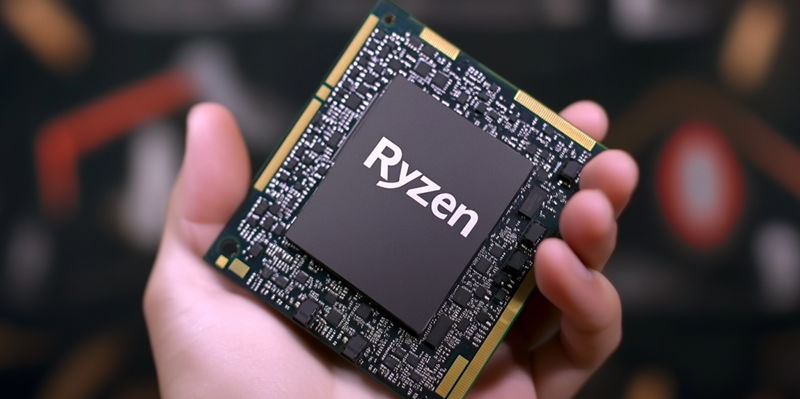Recently, two instances of burned AMD Ryzen 7 9800X3D CPUs surfaced, sparking considerable discussion within the PC building community. Both incidents involved the same model of CPU and were paired with MSI Mag X870 Tomahawk WiFi motherboards. Photos of the damaged chips were posted on Reddit and QuasarZone, featuring burns primarily near the center of the CPU’s pin side, aligning with the center line used in Zen 5 CPUs. These alarming photographs quickly garnered attention, as they highlighted potential vulnerabilities within the popular Ryzen 7 9800X3D, raising questions about the reliability and safety of the hardware.
The Redditor behind one of the posts pointed out that their system failed to pass the Power-On Self-Test (POST) and acknowledged the possibility of user error during CPU installation. However, commenters rapidly veered towards blaming the user despite their experience in building multiple PC rigs. This speculation illustrates the tension and uncertainty around the incident, with the community divided on attributing the failure to either user mishandling or inherent product flaws. As debates continued online, more seasoned PC builders started to recount similar experiences, suggesting a pattern might be emerging with these specific CPUs and motherboards.
MSI and AMD Respond
In response to these incidents, MSI released a statement affirming their commitment to quality and revealed collaboration with AMD and Gamers Nexus to investigate the problem further. This proactive stance from MSI indicates a serious approach to resolving the problem and maintaining customer trust. MSI’s collaboration with well-known entities like AMD and Gamers Nexus also suggests that the company is leaving no stone unturned in identifying potential causes and implementing corrective measures. This is not an isolated case for the Ryzen 7 series, as similar burnouts previously occurred with the Ryzen 7 7800X3D, prompting AMD to introduce BIOS updates as a fix.
Currently, the exact cause of the new Ryzen 7 9800X3D burnouts remains uncertain, but the investigation is ongoing with hardware sent to Gamers Nexus for deeper analysis. Hardware enthusiasts and industry professionals are eagerly following the results of this investigation, hoping that detailed scrutiny will pinpoint the exact source of the problem. Whether the issue lies in hardware defects, faulty installation procedures, or possibly software incompatibilities, the outcome of MSI and AMD’s inquiry will be pivotal in preventing future occurrences and ensuring the long-term viability of the Ryzen 7 9800X3D in high-performance applications.
Industry Implications
The PC building community was abuzz with two cases of burned AMD Ryzen 7 9800X3D CPUs, both paired with MSI Mag X870 Tomahawk WiFi motherboards. Images of the damaged processors were shared on Reddit and QuasarZone, showing burns primarily near the center on the pin side, corresponding with the center line used in Zen 5 CPUs. These disturbing photos quickly gained attention, raising concerns about potential weaknesses in the popular Ryzen 7 9800X3D, and sparking discussions on the reliability and safety of these components.
One Reddit user, who posted about their experience, mentioned that their system failed the Power-On Self-Test (POST) and admitted the possibility of user error during installation. Despite their experience in building multiple PCs, many commenters hastily blamed them for the mishap. This reaction underscores the tension and confusion surrounding the incident, with the community split on whether the failures resulted from user mistakes or inherent product defects. The ongoing debates saw seasoned PC builders sharing similar stories, hinting at a potential trend involving these CPUs and motherboards.

